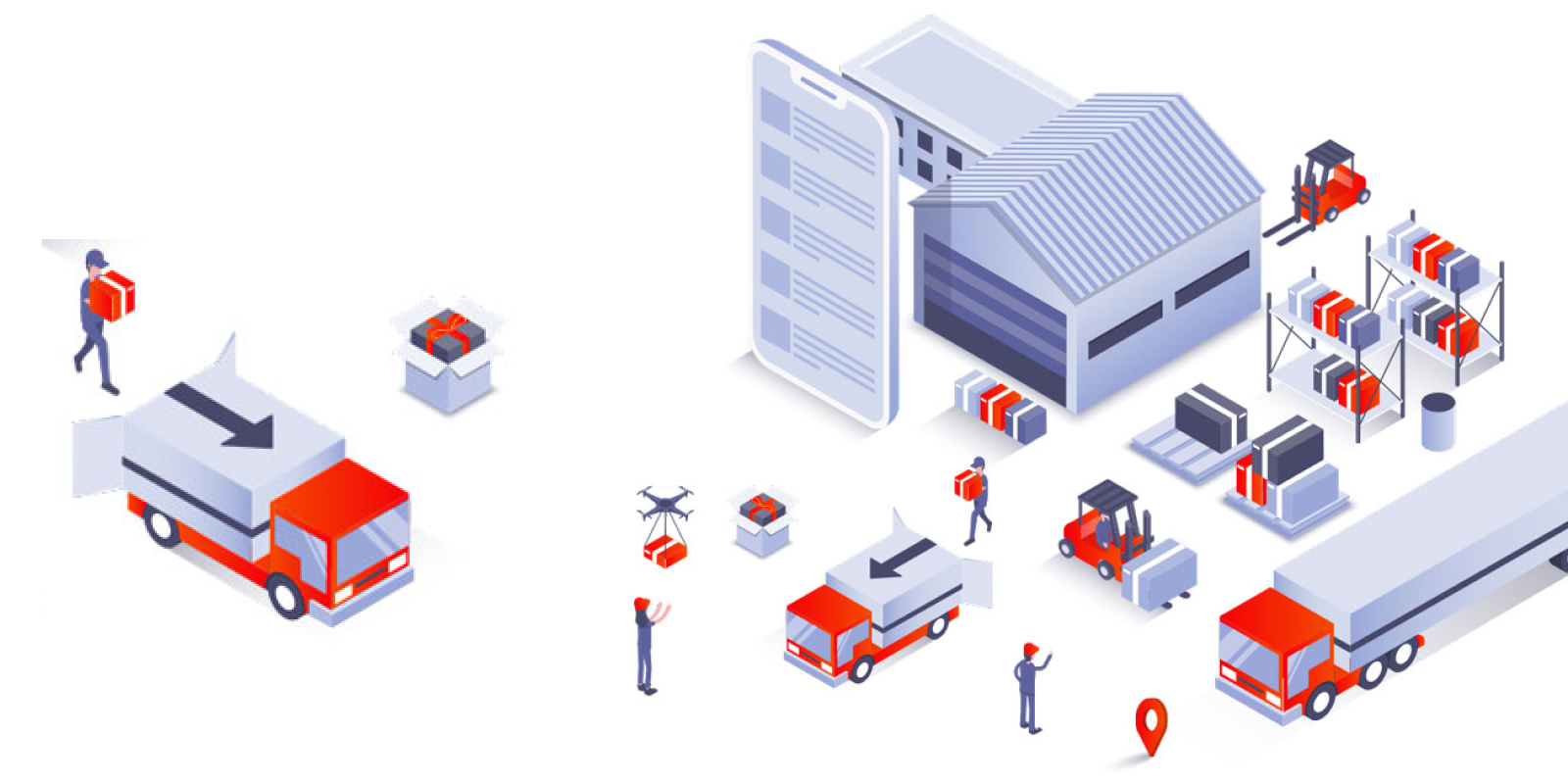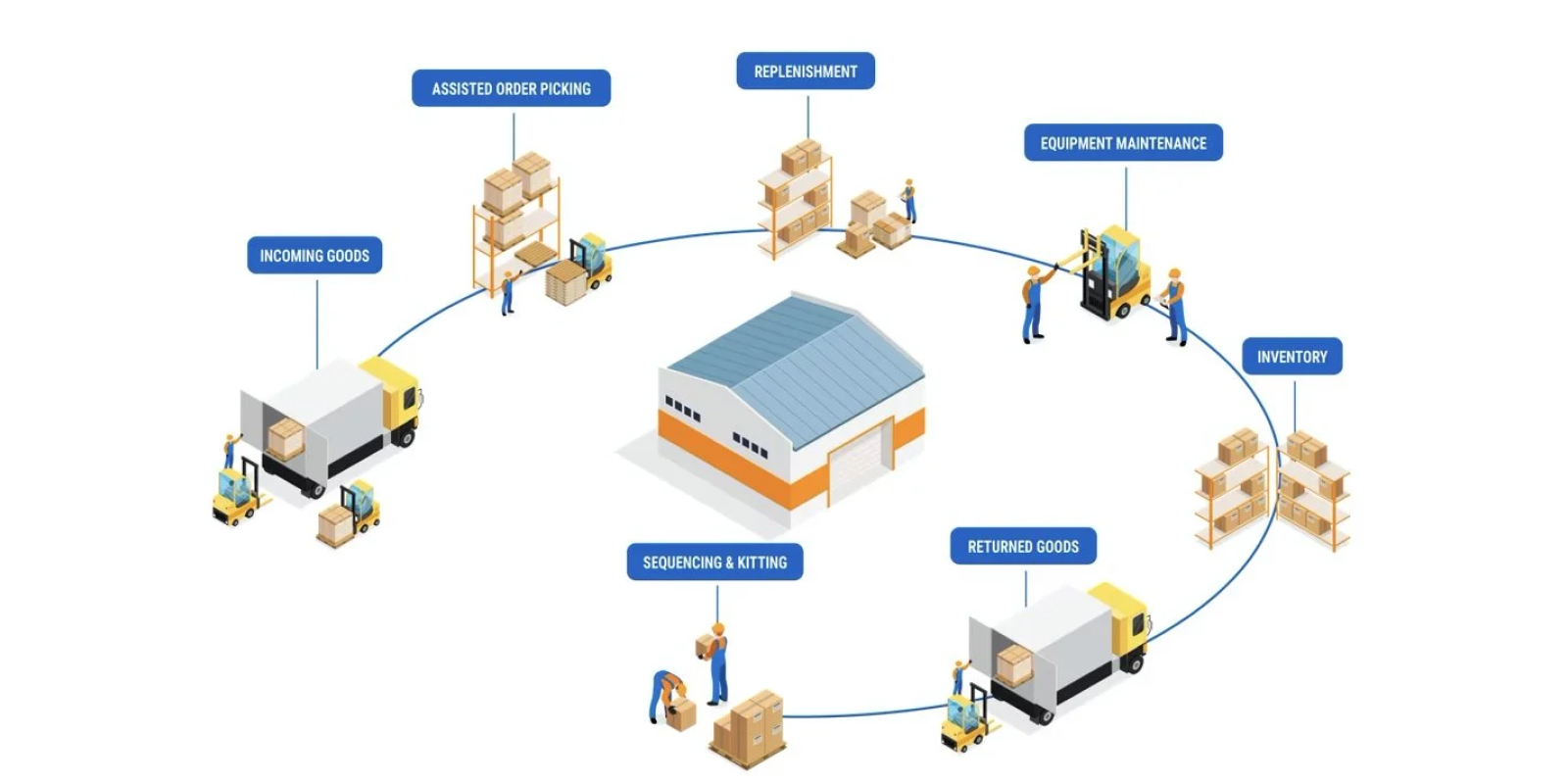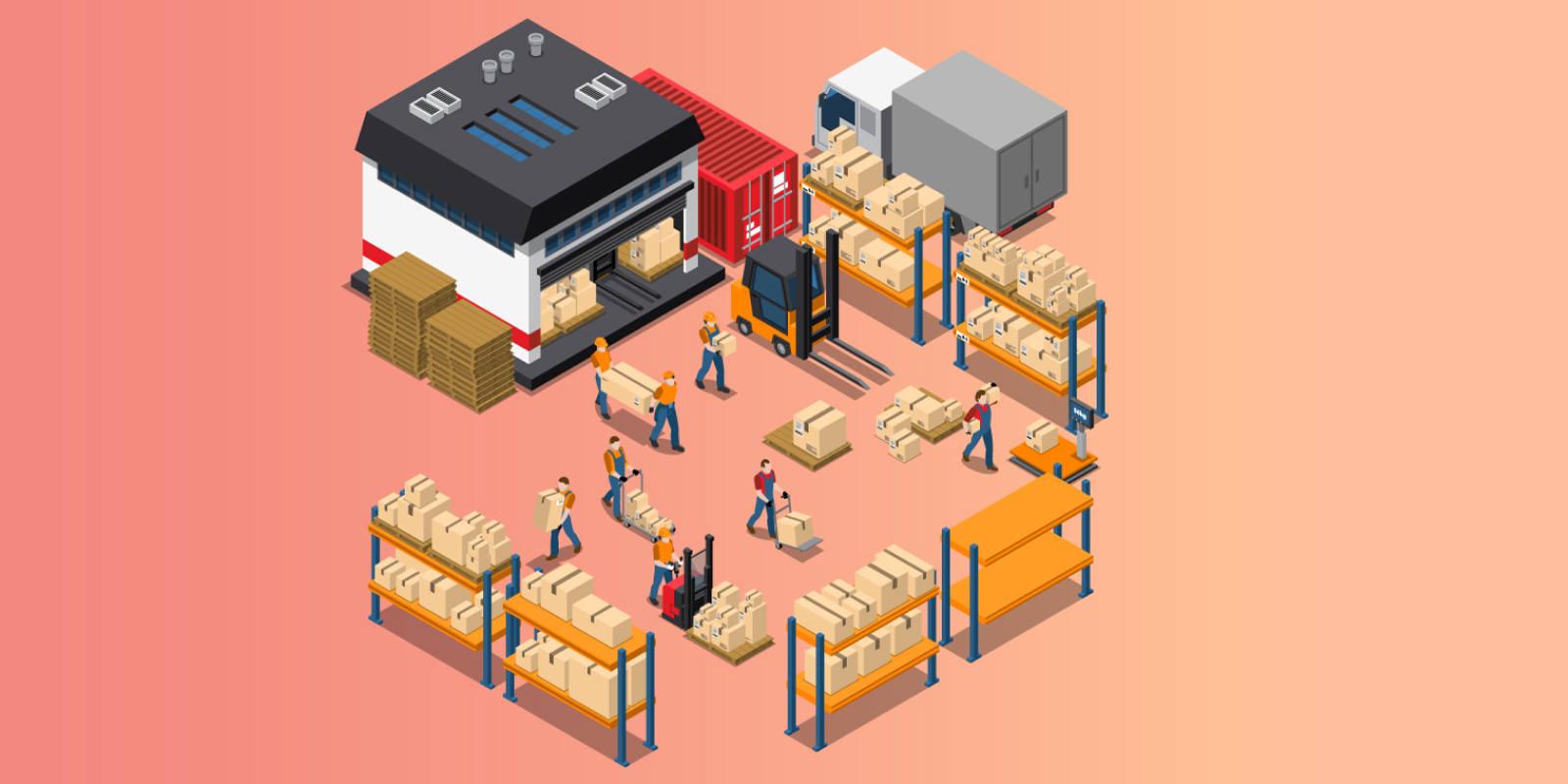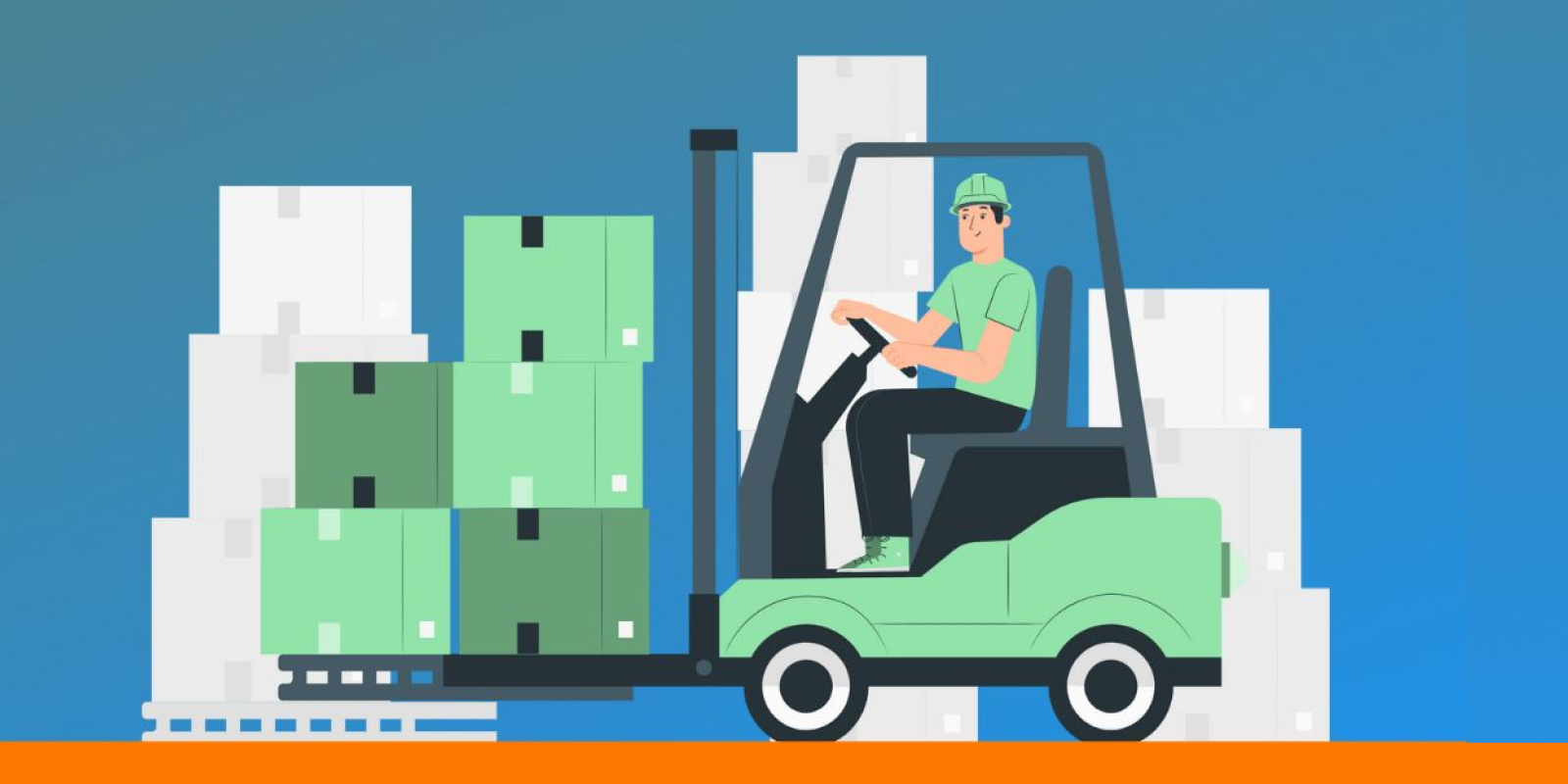Date: 2024-08-15
Logistics Trends That Will Shape Logistics Management in Supply Chain

In the ever-evolving landscape of the global economy, logistics management plays a pivotal role in ensuring the seamless flow of goods from manufacturers to end consumers. As technology continues to advance and consumer expectations rise, the logistics industry is undergoing significant transformations. In this Oswal Logipark official blog post, we will explore the key logistics trends that are poised to shape the future of logistics management in the supply chain.
1. Digitization and Data Analytics
The digital revolution has permeated every industry, and logistics is no exception. The adoption of advanced technologies, such as the Internet of Things (IoT) and artificial intelligence (AI), is reshaping how logistics processes are managed. Real-time tracking of shipments, predictive analytics for demand forecasting, and route optimization are becoming standard practices. The integration of data analytics into logistics operations not only enhances efficiency but also provides valuable insights for better decision-making.
2. Blockchain Technology for Enhanced Transparency
Blockchain, originally developed for cryptocurrencies, has found its application in logistics to enhance transparency and traceability. The decentralized and secure nature of blockchain allows for a tamper-proof record of every transaction within the supply chain. This ensures transparency and accountability, reducing the risk of fraud and errors. From verifying the authenticity of products to streamlining the documentation process, blockchain technology is set to revolutionize logistics management.
3. Autonomous Vehicles and Drones
The concept of autonomous vehicles is no longer confined to science fiction. In logistics, autonomous trucks and drones are being developed and tested for various applications. Autonomous vehicles promise to improve efficiency, reduce labor costs, and enhance safety in transportation. Drones, in particular, are being explored for last-mile delivery, especially in urban areas where congestion is a significant challenge. As regulatory frameworks evolve, we can expect to see increased integration of autonomous vehicles into the logistics ecosystem.
4. Eco-Friendly Initiatives
Sustainability is no longer just a buzzword; it's a critical consideration for businesses across industries. At Oswal Logipark, we believe that reducing the carbon footprint is a top priority. Companies are exploring alternative fuels, electric vehicles, and eco-friendly packaging solutions to make their supply chains more sustainable. The focus on environmental responsibility is not only driven by ethical considerations but also by the growing awareness among consumers who prefer environmentally friendly products and services.
5. Collaborative Logistics Platforms
In a globalized world, collaboration is key to success. Collaborative logistics platforms are emerging as a solution to optimize the use of resources and improve overall efficiency. These platforms bring together multiple stakeholders in the supply chain, allowing for better communication, coordination, and resource sharing. By breaking down silos and fostering collaboration, logistics providers can address challenges more effectively and deliver a more streamlined experience for customers.
6. E-commerce Integration
The rise of e-commerce has reshaped consumer behavior and, consequently, logistics requirements. As online shopping continues to grow, logistics management is adapting to the unique challenges of e-commerce, such as the need for faster delivery times and a flexible supply chain. Integration with e-commerce platforms, automation of order fulfillment processes, and the implementation of intelligent warehouse management systems are crucial for meeting the evolving demands of the digital consumer.
7. Resilience and Risk Management
The global supply chain disruptions experienced in recent times, such as the COVID-19 pandemic, have underscored the importance of resilience and risk management in logistics. Companies are reevaluating their supply chain strategies to build in flexibility and redundancy. This includes diversifying suppliers, creating contingency plans, and investing in technology that enables real-time monitoring and quick response to disruptions. Resilient logistics management is not only about mitigating risks but also about creating a supply chain that can adapt to unexpected challenges.
8. Robotics in Warehousing
Automation in warehouses is rapidly advancing with the integration of robotics. Autonomous robots are being used for tasks such as picking, packing, and sorting, reducing the reliance on manual labor and increasing the speed and accuracy of warehouse operations. The use of robotics is particularly beneficial in e-commerce fulfillment centers where the demand for rapid order processing is high. As the technology matures and becomes more affordable, we can expect widespread adoption of robotics in various aspects of logistics management.
9. Customization and Personalization
Consumer expectations for personalized products and services are on the rise, and logistics is not immune to this trend. The ability to offer customized shipping options, such as preferred delivery times and locations, is becoming a competitive advantage. Advanced logistics systems can analyze customer data to predict preferences and tailor delivery services accordingly. As logistics providers strive to differentiate themselves in a crowded market, customization and personalization will be key factors in meeting the unique needs of diverse customer segments.
10. Augmented Reality (AR) in Logistics Operations
Augmented Reality is finding applications in logistics operations, especially in the areas of order picking and warehouse navigation. AR devices can provide warehouse workers with real-time information, guiding them to the location of items and helping them fulfill orders more efficiently. This technology not only reduces errors but also improves the training process for new employees. As the cost of AR devices decreases, we can expect wider adoption in logistics settings.
Conclusion
The future of logistics management in the supply chain is being shaped by a combination of technological advancements, environmental considerations, and changing consumer expectations. Embracing these trends is not just a matter of staying competitive; it's about building a resilient and responsive logistics ecosystem that can thrive in the face of uncertainty. As we move forward, companies that leverage these trends effectively will be better positioned to navigate the complexities of the modern supply chain and deliver superior value to their customers.



